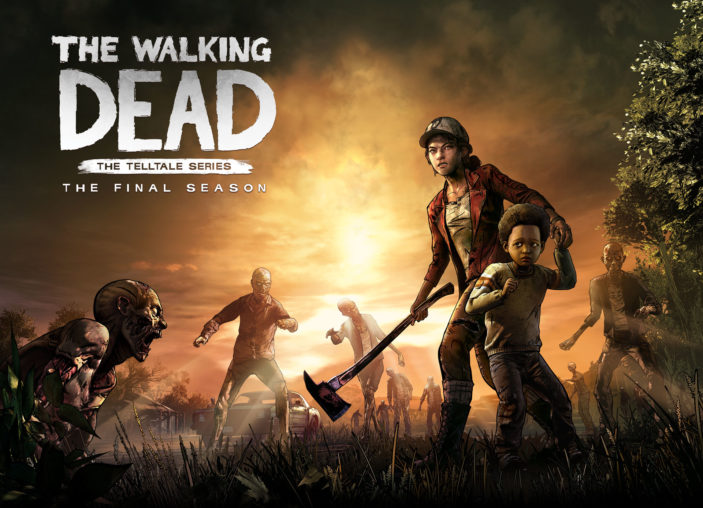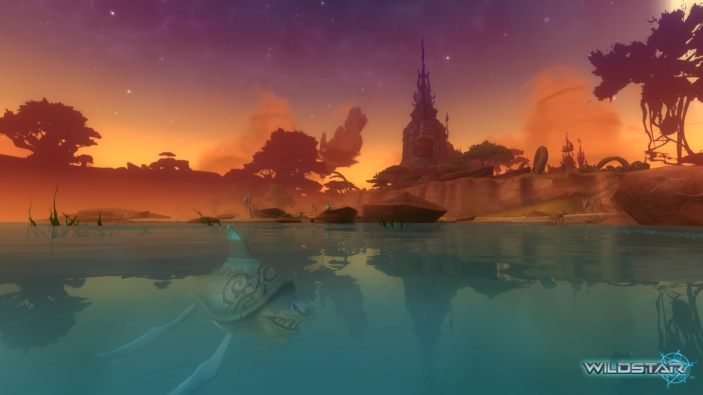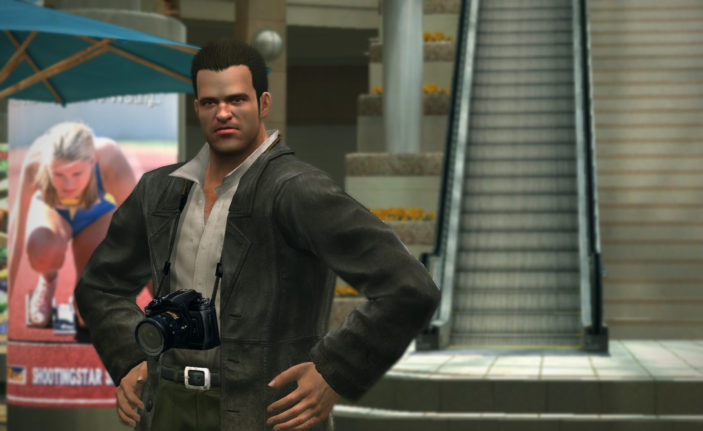
Developers being chewed up and spat out by the global video games industry is a topic that’s been cropping up a lot over the past months. As news of renowned studios closing their doors, sky-high developer turnover and, just as of this week, employees working 100 hour weeks in an effort to get major releases ready for launch.
The video game industry has always never been kind to developers — many opportunities within the industry are granted on a contractual basis. Even here in Australia, we’ve seen our share of crappy working conditions and sudde changes of fortune in the gaming sector. L.A. Noire developer Team Bondi are perhaps the most notorious local example — the stories of long hours, tyrannical management and the studio’s abrupt closure have become cautionary tales.
2K Australia was another major studio that closed its doors with little warning, the result of a falling Aussie dollar that made production costs for its American parent company skyrocket. The changing of company culture at Halfbrick. And then there’s the smaller studios we’ve lost along the way. Pandemic. Blue Tongue. There are hundreds of stories from developers and studios that have suffered similar fates.
Two weeks ago, Game Workers Unite Australia published findings on a survey regarding working in the gaming industry. If you don’t spend a lot of time thinking about where your games come from (and you really should), you may find the results rather shocking.
Our survey data shows that more than one third of Australian game developers are working full time hours and earning less than minimum wage. This is not acceptable. Read our statement and call to action here: https://t.co/jg9Hh3qXkP pic.twitter.com/7tvABXS5dW
— Game Workers Australia (@GameWorkersAU) October 10, 2018
Bluntly put, these numbers are appalling.
Game Workers Unite is an international union with a simple mission statement: Labour within the global games industry must be organised in a way that protects industry workers.
Last week, I got the opportunity to speak with Tim Colwill, veteran games journalist, satirist at Point & Clickbait and outspoken organiser of Game Workers Unite’s Australian chapter. Editor’s note: At the time of the interview, the controversy surrounding Red Dead Redemption 2’s 100 hour work weeks and unpaid overtime had not yet broken.
The AU Review: What’s the mission statement of Game Workers Unite?
Tim Colwill: Just broadly, it’s to bring any kind of unionisation to an industry which is desperately suffering from a lack of living standards for its workers — you know, it’s not an exaggeration to say that unionisation in the games industry is basically zero. That’s accurate. There’s France, where they have unions who are already working in the space and trying to unionise, and places like Sweden where, for example, DICE and EA in Sweden has signed on to a union-negotiated collective agreement, but generally the games industry has basically zero unionisation, and certainly has zero unionisation in the US where all the major development happens. That’s just a fact.
So the basic mission statement is to actually get any kind of unionisation happening and we are very much at the stage where we are educating people as to what a union is, we are educating people as to why a union can help their situation and exactly in the same way that unionising has helped people for literally hundreds of years before any of us were even born, and showing them how they can get there. It’s time to unionise. It’s time to push back, you don’t need to accept really long hours for really low pay. Games CEO’s are paid astronomically well and constantly the workers are told “You don’t need a higher wage because you love the job.” That’s bullshit, and it’s not good enough anymore.
The average game developer stays in the industry for less than 5 years. That’s as true as it is in the US as it is here, the numbers are basically the same. You get into the industry, you get burned out, and you go “Fuck this” and you leave. Like, it’s a cruel combination of really long hours, with really low pay, with really low job security — and you’re told to deal with that because “you’re so lucky to have landed this wonderful job in games, how lucky of you, it’s basically not even work, it’s basically just fun” and you’re told that whilst you’re also expected to work a 70 to 80 hour week and sleep under your desk, come in on the weekends, and get laid off once the game gets released because you’re only on a temporary contract in the first place. It’s fucked. that’s why so many people leave.

Do you think contract terming causes worries of unionising?
Let’s put all our cards on the table, contract work is generally used by employers to a) keep the cost down and b) to help break up unionising efforts. That’s just a fact, from an industrial relations point of view, that is literally what the purpose of contract work is. Now that I’ve said that, an employer would turn around and say “No no, sometimes I only need people for an X amount of time” but, when you’re asking people to give up so much in terms of their time, maybe relocating for this work, and you dangle the prospect of full-time employment and you rip it away as soon as the project is complete — it’s really bad, it’s just a really desperate situation, and contractors know that they have no rights and know that they have nothing to look forward to, some of them are in it for the hustle, some of them really like being “Self Employed”, but generally speaking, especially in Australia, that short term contracting is 100% used to keep labour costing down, whether it’s through union busting, whether it’s through making employees too afraid to do anything, or whether it’s simply by saving money on entitlements like annual leave and sick leave and so on.
Australia in particular has had a rough time with AAA studios, with Team Bondi closing, 2K Australia closing — one of things spoken about around the Team Bondi closure was it had a toxic work environment being fostered, there was massively unfair conditions going on in the workplace. How would a video game union approach bettering situations in the workplace?
First of all, the primary way that unions can achieve this is by saying “when it comes time to write policy and write how the organisation conducts itself, if there are enough union members in the organisation they can force the company in the negotiating period to write really strong, really good and constructive policies into their actual conditions of employment into their bargaining agreement and then work to enforce those rather than relying on a company to just do the right thing… … the games studio can just say “we’re not going to sign any new wage agreement unless it comes with the following conditions” and they can actually dictate the terms of the policies that they want and force the boss to sign onto them and those things get enshrined into law once the agreement is approved by the Fair Work Commission, and then workers at that site can say when it comes time to actually push back against that toxicity, they can say “No, this is actually legally enforceable, and you agreed to this, and I’ll see you in court”, rather than just saying “I hope if I tell my story to a journalist that things will change.

Another way obviously is to actually take out a bullying and harassment case against the company. Now, if you were to do that on your own, basically, it’s a really long, uphill struggle. You can expect to spend years doing it, you gotta pay for your own legal advice, that kind of stuff. If you’re a union member, you don’t need to worry about it because you’ve got access to lawyers who you don’t have to pay for because the union pays for them. You’ve got access to the resources you need to take time off, to do your research, to collate your witness statements, that kind of stuff. And you can basically go straight into court with everything you need to get it solved and, especially if everyone on your side is a union member, then you’ve got that collective strength to make sure that case is wide-ranging and that it gets heard.
The primary way the union can solve this is by making the workplace so uncomfortable for the people causing that toxicity and causing that harassment that the company takes action to fix it. Like, you don’t actually need to go on strike in order to make changes happen at the workplace. And certainly in Australia our workplace laws are so bad that if you do go on strike when you’re not authorised, you can face a personal fine of tens of thousands of dollars. You don’t need to go on strike to get this kind of thing solved, but if everyone is coordinating, everyone is a union member, everyone can start acting in small ways — you can start delaying approvals on processes, you can start showing up late to meetings, you can start blocking the hallways around important areas, you can make a lot of noise when executive meetings are on, you can do all kinds of coordinated activities that just make the work environment just so fundamentally unworkable until your demands are met. You’ve got to have that collective strength. At the end of the day, the boss wants the studio running smoothly.

Is there concern for the developers at Telltale in being able to relocate within the gaming industry?
Certainly, certainly. We saw other companies like Ubisoft reaching out and saying “We’re hiring people” and other companies “Also come along to our job day!” and stuff like that, but at the end of the day, it’s still a pretty small industry. And the reason people accept short term contracts, or the reason that people are willing to uproot themselves and move across is because work is so scarce, so every time a company shuts down you can expect on aggregate that a large percentage of those people will never return to the industry. Every time those studios shut down, that’s exactly what happens, a percentage of the people just disperse and are never heard from again.
Skybound has picked up Telltale’s Walking Dead series for the final season, with some of the former developers from Telltale, but there’s still been no talk of supporting the employees that have been laid off. What are some comments that can be made about this?
The Skybound thing is certainly just swooping at the last minute to try and make some profit off a situation that is already bad while doing nothing to help. The fact of the matter is what they’re doing is they’re offering a very small amount of people a very small amount of contract work, and then they’re going to ditch them again. Skybound is a publishing house — they don’t even have a development office. They’re not going to be hiring on the dev team and saying “We’re going to give you 5 more years of guaranteed full-time work as an employee with full rights, they’re not going to do that. It’s a purely profit-driven operation, and they have been very careful to frame it as an act of charity. If you wanted to finish Clementine’s story the right way, why don’t you find the money to pay 250 people their severance pay and then you can pick up the rights.
If you’re profiting as a corporation from the absolute, textbook financial mismanagement of another company, then you have a moral responsibility to do something to help. And giving a handful of people a handful of days of contract work is not doing something to help, especially if you’re making a massive profit at the end of it. If they were donating all the profits they made from The Walking Dead to paying out the severance fees of 250 Telltale staff, I would be over the moon. What an absolute act of charity, of selflessness. What a wonderful thing that would be. That’s not what’s happening — what’s happening is a company has smelt blood in the water and seeing if they can make a profit off of it.

The past 12 months have actually been very bad for the gaming industry, with the closure of 10 studios. What can be cause to these major studio closures?
Every studio’s financial situation is different, but the thing that we are dealing with now is that the video game industry is shrinking. We have bigger and bigger publishers, we have bigger and bigger platform holders, and we have a bigger and bigger expectation from the gaming consumption community (or “Gamers” if you will) that games have to be bigger budget, they have to be longer lasting, and that they have to be looking better than ever.
The shift towards games-as-a-service rather than games-as-a-product, what that means is that companies now are trying to make every game last as long as they can by providing long content updates, by providing DLC, by making it online, by having events and that kind of stuff, because that has been discovered as the best way to maximise the profit. We should not interpret the closure of these studios as any kind of indication that the industry is not profitable, far from it. EA, Activision, all the big names, TenCent — they are making money hand-over-fist; what we are seeing is the industry squeezing out smaller players as more and more money is funneled to the top end. It’s no different than any other industry. This is the inevitable result of our capitalist economy, it’s that the big end of town will always begin squeezing out the smaller end of town. And that’s exactly what’s happening here.
It’s increasingly impossible for small companies to make a profit in this environment when you have big companies controlling everything. At the end of the day, this is not only a bad deal for the consumer because the available options then decrease every year, but it’s an ever worse deal for the workers. Not only because when they work at these smaller studios and they go out of business, obviously that’s a devastating blow to their livelihood and their income, but because it means that the more profit that these companies make, the more they’re able to set lower and lower wage standards, the more they’re able to control what they’re willing to pay and the more they’re able to set the terms that workers work under. And when that happens, the power balance shifts, and it shifts in the wrong way.
Massive thanks to Tim Colwill for taking the time to speak with us. You can find Tim on Twitter at @Burgerdrome and at his extremely good games industry satire website Point & Clickbait. If you’re a game developer, no matter where you’re from, please check out the Game Workers Unite website. Here’s a link to the Australian chapter. If you’re a gamer, please consider visiting the site too. We urge you to do your research, find out what goes into making the experiences you love and the toll it takes on the people who make them.
